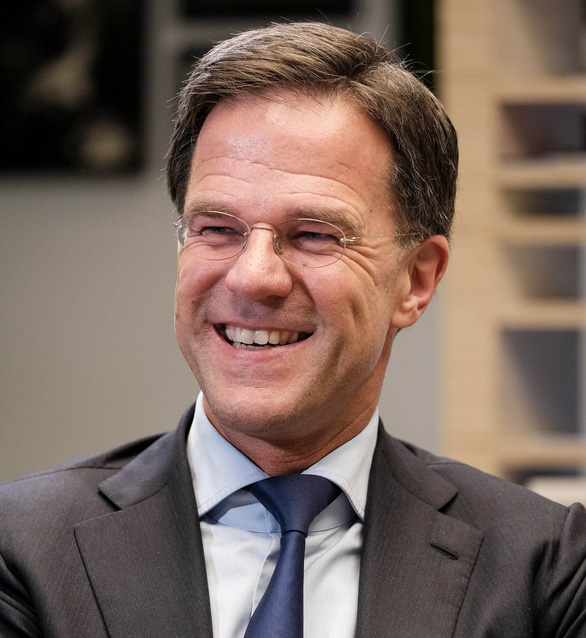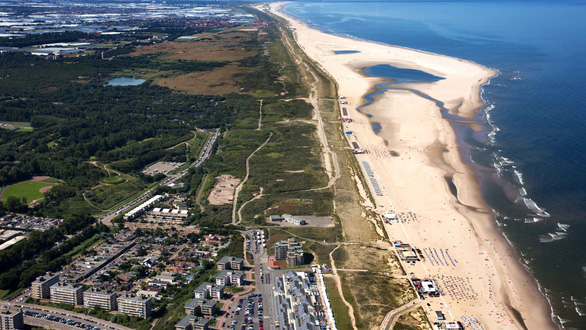Within the framework of his official visit to Vietnam, Dutch Prime Minister Mark Rutte sat down on Wednesday for an interview with Tuoi Tre (Youth) newspaper, where he talked the two countries’ common issues - sustainable development and climate change adaptation.
The visiting premier commenced his one-day visit on Tuesday.
The Netherlands has set the vision to transform its economy to a circular economy by 2050. How is a circular economy better compared to the conventional model? How can Vietnam prepare to adopt the model in the near future?
The great thing about a circular economy is the fortitude to rethink the total design of the social process including how to build buildings and how to deal with agriculture. You really have to rethink the whole system.
You can sometimes start from the present infrastructure and the present layout of the economy but you have to really rethink the whole deal.
For example, you can start from waste management and make some steps. But it takes time to achieve a fully circular economy. It also takes time for the Netherlands to do so. We have only started and so have you.
It is a two-way street and we can learn from each other. We have made mistakes that we hope you will not make because we can tell you, “Don’t do it like that." And you also have some experiences that we can learn from.
The Netherlands has actively supported Vietnam to adapt to climate change in the Mekong Delta. Concerning the current condition of Vietnam, which do you think is the better solution - dike construction or nature-based solutions?
The similarity between Vietnam and the Netherlands is water and flooding. Some 17 million people in the Netherlands live below sea level. Even the airport is four meters below sea level.
We sometimes joke that “God created Earth but the Dutch created the Netherlands” because we literally have to build dikes and dams to make sure that people stay dry.
Sometimes it is still necessary to build dikes but it is not always the only solution.
After years of dealing with water issues, we have learned that you can work with nature instead of against nature.
You can also deal with water issues not by building dikes but by using natural forces. And the water is presenting itself as the problem so we change it a little bit and make it an advantage.

A province in the Netherlands had an idea of building a few islands out of the coastland to make the coastland itself less vulnerable and have positive impacts on that part of the country.
That is the insight that we have gained in the Netherlands and we would love to share with Vietnam.
I also learn a lot from your country, from issues you are confronting in the Mekong Delta where 20 million people are living and being directly impacted by environmental and natural changes.
One of the particular discussions we have today is about governance. It is not difficult to make a plan but the question is how to implement, how to make sure that local communities, local farmers, local cities, local societies will also buy into it.
You can’t do the top-down approach. That is what we have learned.
We tried the top-down in the Netherlands and it didn’t work.
More countries have been talking before deciding. The good thing about talking in a long time before making decisions is that you have to bind people together.
Is technology a secret for the Netherlands’ success in agriculture?
It is a fascinating fact that we have a system of agricultural universities that we call “green universities” which link to vocational training and to small farmers living somewhere in the Netherlands, enabling them to immediately hook up to the whole system.
Farmers can phone to directly ask questions to the best professors in the world-renowned Wageningen University, for example.
Building that infrastructure in terms of research and education really has a huge impact on small farmers in the Netherlands. Farmers are being impacted by many issues but if there is an issue, they can be easily connected to the best experts in the agricultural sector.
And I think this is something we could export to Vietnam.
You also have excellent scholars here so I think it's easy for you to implement.
I think we also have to learn from Vietnam because you are the big exporter in the world, especially in terms of rice and coffee.
Like us on Facebook or follow us on Twitter to get the latest news about Vietnam!


















































